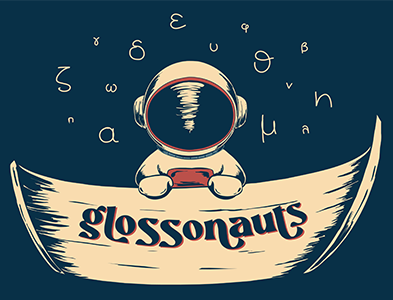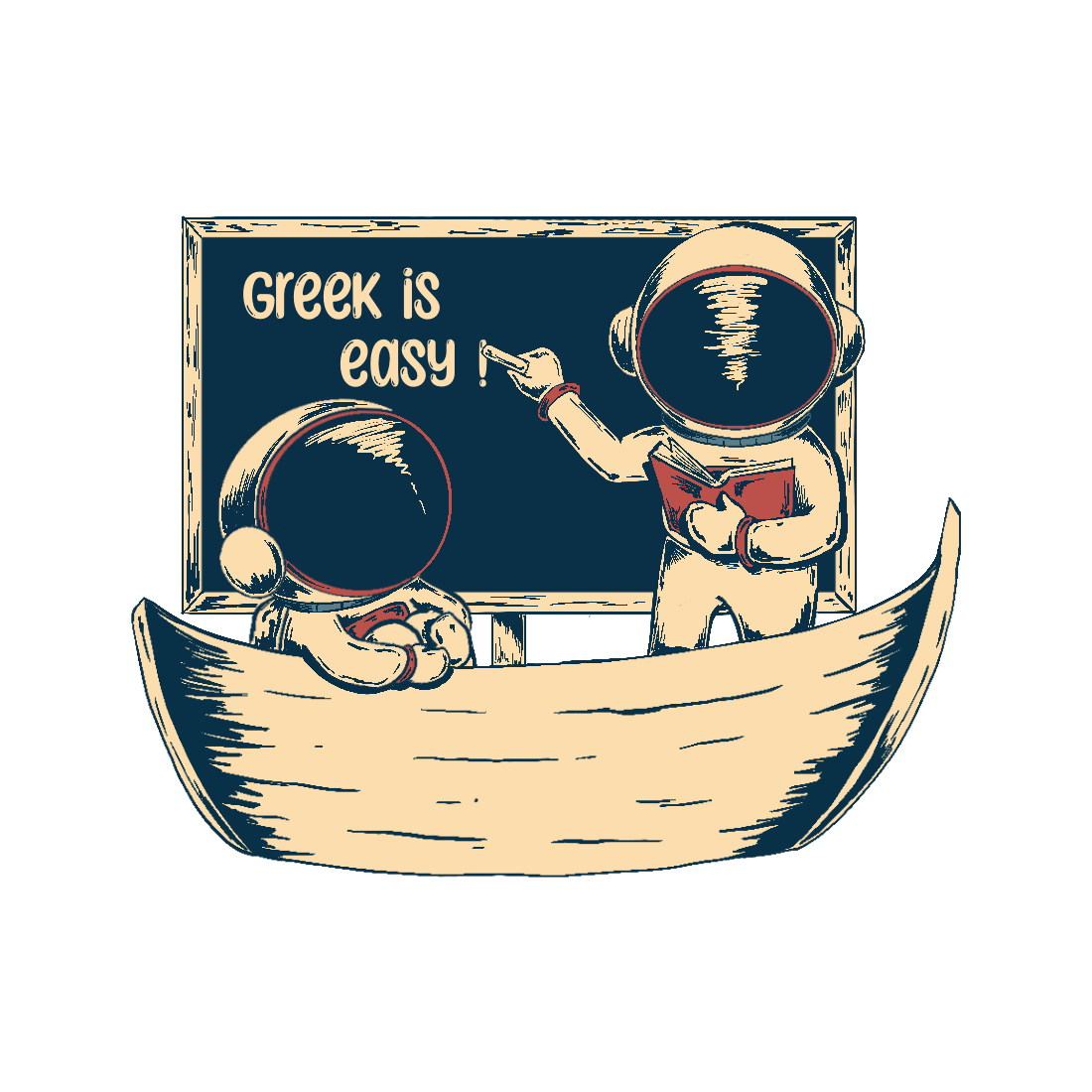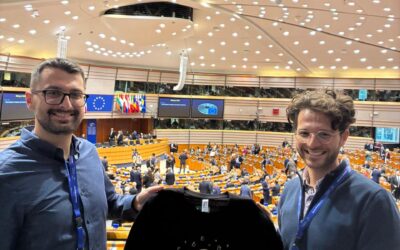
Figure 1 – 3rd International Conference on Digital Linguistics
Earlier this June, we had the chance to present our research at the 3rd International Conference on Digital Linguistics hosted by the Polytechnic University of Valencia. The theme? How social media—particularly Instagram—can become a fertile ground for foreign language learning, community building, and cultural connection. And yes… we talked about the Glossonauts.

Figure 2 – Konstantinos and Vlasis presenting
Together with Vlassis Manolias, we introduced our work on how our online Greek learning community has evolved into a space of authentic interaction, creative language use, and shared identity. What started as an experiment in making Greek fun, visual, and relevant for learners around the world, has turned into something much deeper: a community of practice.
What Are the Glossonauts, Really?
If you’re new here—Glossonauts is more than just a playful name. It’s a global crew of learners, teachers, researchers, and enthusiasts who navigate the Greek language together across oceans and time zones. Through videos, reels, podcasts, private lessons, and memes, we experiment with how language is used in the real world—and how we can learn through it, not just about it.
The conference was the perfect setting to zoom out and look at this whole adventure through a research lens.
What We Presented
Our presentation focused on:
- How Instagram acts as a semiotic playground for learners to encounter Greek in authentic, contextualized ways
- How multimodal input (images, captions, stories, interaction) supports vocabulary retention and cultural awareness
- How learners engage not just as consumers, but as participants in a living, breathing language space
We also shared our reflections on the pedagogical and emotional value of digital communities, especially when they are built on trust, humor, and mutual curiosity.

Figure 3 – one of the most important results of the research
This chart shows responses from 100 participants in the Glossonauts community. An overwhelming majority shared that being part of the community increased their interest in learning Greek (72%) and made the learning experience more enjoyable (76%). Many also felt supported in setting goals, gaining a sense of accomplishment, and connecting with other learners.
These results highlight the positive emotional and motivational impact of community-based learning and affirm Glossonauts as a vibrant space for meaningful engagement with the Greek language.
Beyond the Slides

Figure 4 – with the other researchers during the break
One of the highlights was the discussion that followed. Colleagues from different countries resonated with our approach. They shared their own experiments, challenges, and visions of what language learning in the digital age can look like—less rigid, more human, more playful. And in between all that? Tapas, laughter, long dinners under the Valencian sky, and the realization that we’re not alone in trying to do things differently.
What’s Next?
This conference was not just an academic milestone, but a personal one. It reminded me why I do this work, and why I believe in the Glossonauts project—not just as a teacher, but as a learner and collaborator.
We’re now exploring ways to expand the research: surveying learners, analyzing interactions, and connecting more dots between digital presence and linguistic development.
Stay tuned—this is just the beginning.
PS: I’ll be sharing some photos from the conference on social media—if you see a group of smiling, slightly sunburned linguists in paella heaven… that was us. Yes, this is me trying out the famous “aigua de Valencia” «Στην υγειά μας» [cheers]:

See you in the next one!
Konstantinos





